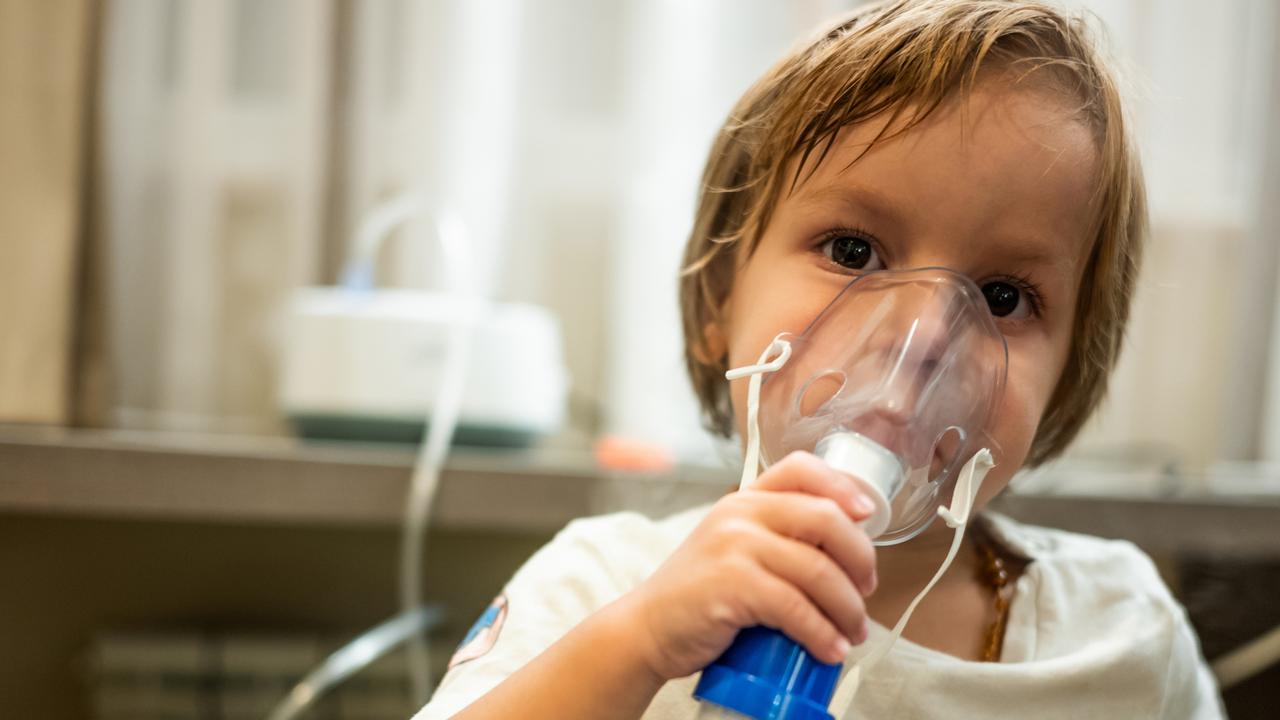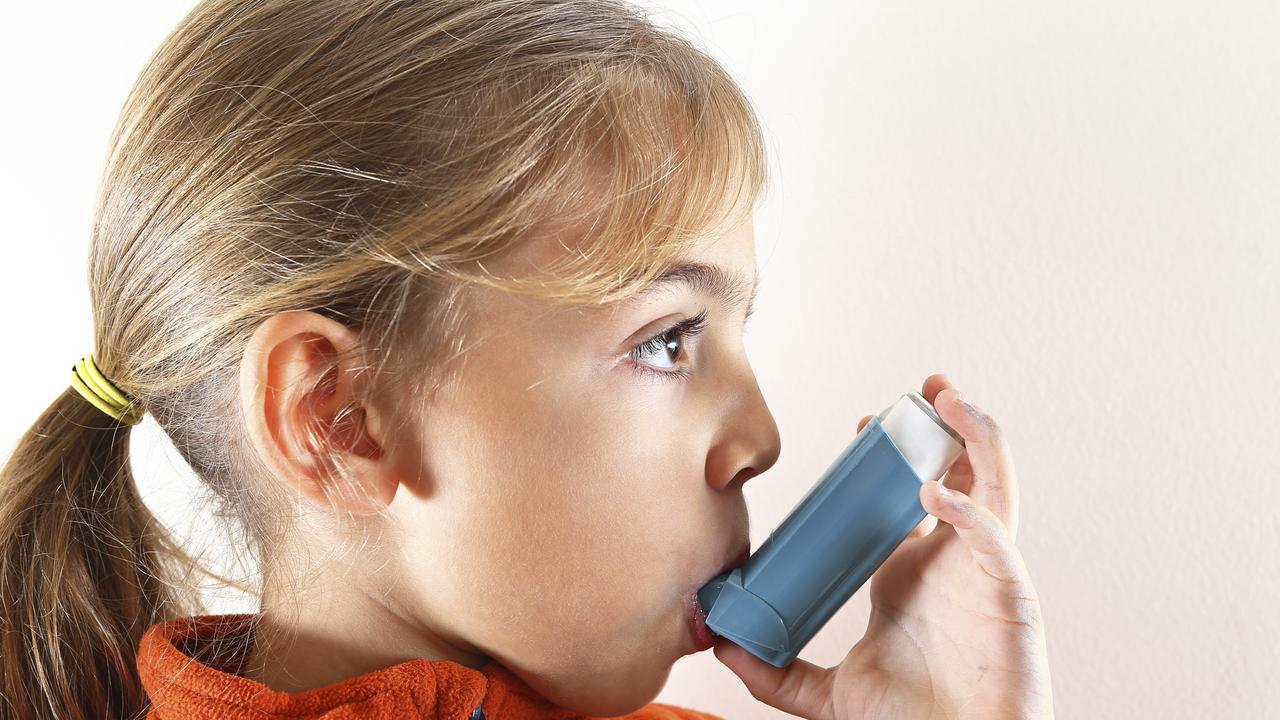Victorian scientists solve decades-long asthma mystery
New Australian discovery at the forefront of developing lifesaving preventive treatments for asthma in children

READING LEVEL: GREEN
A crucial link between antibiotics* and developing asthma* has been unveiled, after Melbourne scientists found the answer to a decades-long mystery.
The unexpected discovery could pave the way for lifesaving, preventive treatments, with antibiotic exposure as a baby or toddler one of the biggest risk factors for asthma.
A Monash University preclinical* study found the drug sets off a series of events that ultimately damage some of babies’ key lung cells, after beginning in their gut.
Antibiotics have been linked to asthma — which impacts 2.7 million Australians — and gut* health for years, but researchers had no idea why patients were predisposed to asthma until now.

Research lead Professor Benjamin Marsland said they discovered a type of bacteria* in our gut was responsible for producing a special molecule* which protects babies’ airways.
“Antibiotics deplete certain types of ‘good’ bacteria’,” he said.
He said when this molecule-making bacteria was killed by antibiotics, important cells found in the lining of our airways were left unprotected and “critically changed*” for life.
“That was really surprising to us, and something we never could have predicted,” he said.
“This molecule, IPA*, turns out to protect … these cells in the lungs as they are developing.”
He said the damage was in the cells’ “powerhouses*” and did not go away once the bacteria returned to normal levels.
“That’s why it’s more prone to driving inflammation* throughout the rest of the life,” he said.
“Everything else looks normal.”
Prof Marsland said they had spent “years trying to find” the culprit* behind the antibiotic-asthma link and believed a dietary supplement* containing IPA – and given alongside antibiotics to young children – could now be a potential fix.
“We’ve identified a natural product, which we know is safe, that’s produced by certain types of bacteria,” he said.
Any fix would not eliminate all cases of asthma, as there have been other risk factors, but Dr Marshland said this was “one of the strongest” causes and hoped to secure philanthropic* funding for human trials.

He said while more research on the subject was needed, he suspected antibiotics’ biggest impact on the lungs was in the first year of life, and preventive treatments would likely not be needed after the age of three.
The research team's preclinical trials*, published in Immunity Journal* found asthma-susceptible* young mice were protected when given IPA dietary supplements alongside antibiotics.
Prof Marsland said this research absolutely did not mean that babies should avoid antibiotics.
“Antibiotics are one of the most important advances in healthcare that we’ve ever had and they’ve saved so many lives,” he said.
National Asthma Council Australia director and respiratory physician* Professor Peter Wark said the study suggested “even short term use” of antibiotics in babies “alters the bacteria within the gut”.
“We still know relatively little about what causes people to develop asthma,” he said.
“This important work from investigators at Monash University helps us better understand.”
GLOSSARY
- antibiotics: medicines used to prevent and treat bacterial infections by killing or inhibiting the growth of bacteria
- asthma: a chronic respiratory condition characterised by difficulty breathing due to inflammation and narrowing of the airways
- preclinical study: research conducted to test a drug, procedure, or medical treatment in the lab or on animals before it is tested in humans
- gut: the stomach and intestines, where digestion occurs and much of the body’s microbiome is housed
- bacteria: microscopic single-celled organisms that can be beneficial (good bacteria) or harmful (pathogenic bacteria) to human health
- molecule: a group of atoms bonded together, representing the smallest fundamental unit of a chemical compound that can take part in a chemical reaction
- critically changed: significantly changed in a way that is essential or crucial, often implying an irreversible transformation
- inflammation: the body’s response to injury or infection, often causing redness, heat, swelling, and pain
- culprit: the cause or source of a problem
- dietary supplement: a product taken orally that contains one or more ingredients (like vitamins or amino acids) intended to supplement the diet
- philanthropic funding: financial support provided by individuals or organisations dedicated to promoting the welfare of others, typically through donations
- preclinical trials: experiments conducted to gather preliminary data on the safety and effectiveness of a treatment before it is tested in humans
- Immunity Journal: a scientific journal that publishes research related to the immune system
- respiratory physician: a medical doctor specialising in the diagnosis and treatment of lung conditions and diseases
- microbiome: the community of microorganisms, including bacteria, fungi, and viruses, living in a particular environment such as the human gut
- powerhouses: often refers to mitochondria, which are organelles in cells that generate most of the cell’s energy supply
- IPA (indolepropionic acid): a molecule produced by certain gut bacteria that can have protective effects on the body, including the airways
- asthma-susceptible: referring to individuals or animals that are more likely to develop asthma due to genetic or environmental factors
EXTRA READING
Gut bacteria could help control allergies, asthma
New map app measures air quality
Great choices make healthy lungs
QUICK QUIZ
- What discovery did Melbourne scientists make regarding the link between antibiotics and the development of asthma in babies and toddlers?
- How do antibiotics affect the gut bacteria and subsequently the lung cells of babies, according to the Monash University study?
- What is the role of the molecule IPA in protecting babies’ airways, and how is it affected by antibiotics?
- Why do researchers believe that dietary supplements containing IPA could be a potential solution for preventing asthma in young children exposed to antibiotics?
- According to Professor Peter Wark, what does the study from Monash University contribute to our understanding of the causes of asthma?
LISTEN TO THIS STORY
CLASSROOM ACTIVITIES
1. Medical breakthrough
This medical breakthrough sounds like a simple fix to stop antibiotics leading to asthma in young children. Work with a partner and brainstorm some other medical breakthroughs that may be on the horizon with more medical research.
Think about common medicines we take and common illnesses in society to help you think of where medical research might or should be focused.
Common illnesses that medical research may be able to solve:
–
–
–
–
–
Time: allow 20 minutes to complete this activity
Curriculum Links: English, Science, Personal and Social, Critical and Creative Thinking
2. Extension
Why might babies and toddlers need antibiotics?
Why would giving babies antibiotics be more important than them developing asthma in the future?
What might be some other risk factors for developing asthma?
Time: allow 15 minutes to complete this activity
Curriculum Links: English, Science, Personal and Social, Critical and Creative Thinking
VCOP ACTIVITY
Read this!
A headline on an article – or a title on your text – should capture the attention of the audience, telling them to read this now. So choosing the perfect words for a headline or title is very important.
Create three new headlines for the events that took place in this article. Remember, what you write and how you write it will set the pace for the whole text, so make sure it matches.
Read out your headlines to a partner and discuss what the article will be about based on the headline you created. Discuss the tone and mood you set in just your few, short words. Does it do the article justice? Will it capture the audience’s attention the way you hoped? Would you want to read more?
Consider how a headline or title is similar to using short, sharp sentences throughout your text. They can be just as important as complex ones. Go through the last text you wrote and highlight any short, sharp sentences that capture the audience.

